News
Scientists discover enzyme, breaks down 90% of PET polymers in hours
21 Apr 2020PET plastic can now be broken down into food-grade materials within 10 hours due to a discovery by scientists at industrial chemical firm Carbios. This discovery will transition into industrial-scale trials in 2021 with the help of Carbios’ partnerships with PepsiCo, Nestlé and Suntory.
Although the PET hydrolase enzyme can break down plastics into their individual chemical components, this result is only available for 90% of PET polymers. Nevertheless, this is a significant upswing from prior depolymerizing technologies. FoodBev Media reported that current enzymatic solutions only degrade 1% of PET plastics after several weeks.

The discovery of this enzyme was originally published in the scientific journal Nature, which said, “This highly efficient, optimized enzyme outperforms all PET hydrolases reported so far.”
This new enzyme may present a breakthrough for manufacturers within the food and beverage space if Carbios is successful in scaling up production to a commercial level. Previously, PET plastic has presented a conundrum for manufacturers worldwide. While plastic is acknowledged to be bad for the environment – only 12-14% of hundreds of millions of tons of PET packaging is recycled, according to IHS Markit analysis – the packaging material is also favored for its capabilities in maintaining freshness and enduring temperature changes, all while remaining affordable.
By partnering with some of the world’s CPG giants, Carbios signals that there is ample interest from corporations in commercializing this technology. If successful, this new enzyme has the potential to allow companies to reconsider their approaches to packaging sustainability. In recent years, consumers have continually pushed for more sustainable options and companies from Nestlé to Montreal-based Loop Industries have stepped up to offer varying alternatives to plastic.
However, other industries like the North American fresh berry groups and companies like Coca-Cola have indicated their continued preference for plastic. Having a method to reuse 90% of plastic in a closed-loop economy could be a paradigm shift in what consumers and companies consider sustainable.
Related news
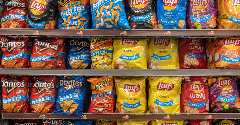
PepsiCo formulates ‘naked’ Cheetos and Doritos products
31 Dec 2025
US food giant PepsiCo has launched its Simply NKD range, a move it says reimagines its popular products with new formulations free from artificial flavours, dyes, and colours.
Read more
Debate over ban on ‘meaty’ names for plant-based products reaches stalemate
26 Dec 2025
The debate over a ban on plant-based products using “meaty” terms has reached a stalemate, leaving manufacturers in limbo and still facing overhauls to their marketing and packaging.
Read more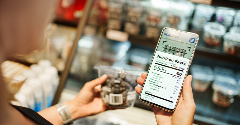
Has ‘clean’ had its day?
22 Dec 2025
Wielding clean-label positioning and fortification as marketing levers is a dangerous strategy, and brands would be better off explaining the hows and whys of the ingredients in their products, say experts.
Read more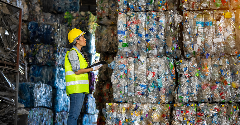
Pioneers of circular plastic packaging push for new policies
18 Dec 2025
Some of the world’s largest food and drink companies have grown frustrated at investing in circular packaging systems, as the majority “wait on the sidelines”.
Read more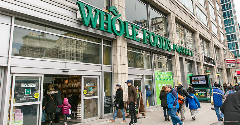
Whole Foods Market forecasts fibre frenzy for 2026
11 Dec 2025
Whole Foods Market has released its top 2026 trends, predicting that a fibre frenzy will take place next year as health-conscious consumers seek out nutritious, filling options.
Read more
Sorghum emerges as better-for-you hero ingredient
9 Dec 2025
With the launch of Novak Djokovic’s sorghum-based brand, the grain’s popularity in the better-for-you snacking sphere is on the rise, thanks to its nutritional and sensory properties.
Read more
Innovation promise in 'maturing' plant-based dairy alternatives market
8 Dec 2025
Plant-based dairy is a maturing market that still faces significant hurdles around taste, functionality, nutrition, and price, but industry is innovating fast, according to experts speaking at Fi Europe.
Read more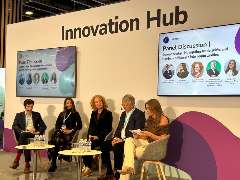
Turning global trade challenges into opportunities
4 Dec 2025
While our food innovation ecosystem is in a healthy place, certain barriers persist. A panel of experts at Fi Europe shared their ideas and strategies for overcoming these, to fully unleash Europe’s potential.
Read more
Celebrating the winners of the Fi Europe Innovation Awards 2025
3 Dec 2025
Food industry stakeholders celebrated as the winners of the Fi Europe Innovation Awards were announced at a ceremony in Paris.
Read more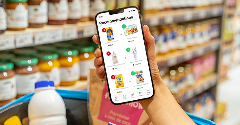
Yuka’s food scanning app helps consumers make healthier choices
2 Dec 2025
Global food scanning app Yuka helps consumers understand the content of their shopping baskets and shapes producers’ reformulation plans.
Read more